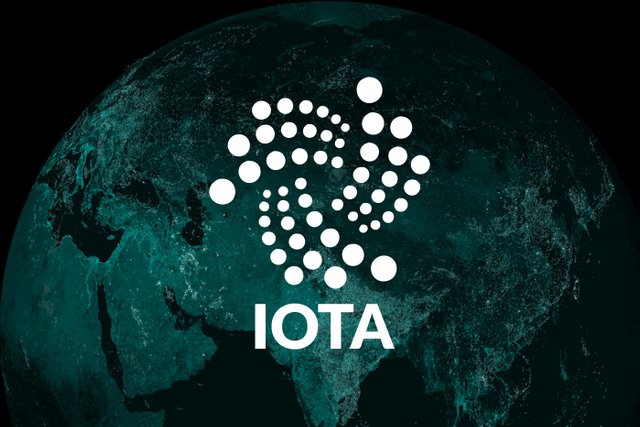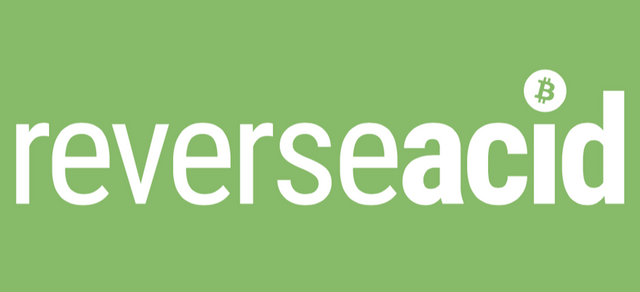Crypto Analysis Series - Part 6: IOTA

Introduction
IOTA is a cryptographic protocol that runs on Distributed Ledger Technology (DLT) which is significantly different from most cryptocurrency projects for one vital reason; it doesn’t run on a blockchain! A previous post of ours highlights that Blockchain is just a subset of DLT, so what kind of database does IOTA use? Their very own DLT called ‘The Tangle’. The Tangle is a Directed Acyclical Graph (DAG), which means that transactions are connected to each other similar to how blocks are connected to each other. The Tangle consists of many vertices and edges. We’ll get to what exactly this means in the next section.
IOTA has been at the receiving end of a lot of criticism from crypto enthusiasts as well as the MIT Digital Currency Initiative for using a centralized network moderator called the ’coordinator’. Is all this criticism warranted or is it too early to judge the project? That’s for you to decide after reading this.
Simple Breakdown
In the IOTA network, when a person initiates a transaction, it has to be connected to two other transactions. In order to do that, the person acts as a miner and cryptographically verifies these two transactions through a low hash power proof of work mechanism. So the end result is the person who uses the network is also the miner for their own transaction. This doesn’t mean they confirm their own transaction; that would be disastrous. When a transaction takes place on the IOTA network, it is only confirmed after two more transactions are attached to it. For simplicity, look at the chart below this paragraph. When transaction number 4 comes into the network, for it to be confirmed it has to use Proof of Work (PoW) to verify two existing transactions to prove it's not malicious and provide an extra layer of security for previously existing transactions. Transaction #4 connects itself to #1 and #2 and connects itself to these two transactions. Then when transaction #6 comes along, it connects itself to #4 and #3.
Each transaction is a vertex, each link between nodes is an edge.
Benefit
What benefit does such a complex system provide? Well, since there is no miner to be rewarded for creating a block and you confirm your own transaction, the biggest benefit of IOTA is no transaction fees. In addition to eradication of fees, scalability is one of the biggest problems in blockchains. Most cryptocurrencies like Ethereum are facing major issues on how to scale their network. The massive amount of data that passes through it is the core reason for this. IOTA solves it by not confining information to closed blocks. Rather than that, it uses a distributed ecosystem where each transaction connects to other transactions to form a chain. By this mechanism, the chain has no restrictions and can theoretically increase to the power of infinity (forever). Sounds like a simple solution to scalability, but Vitalik’s trilemma comes into play here. While IOTA is secure and scalable, it isn’t currently decentralized. The network uses a centralized node called the coordinator to create special transactions called ‘milestones’. Milestones are a transaction that has a list of some confirmed transactions. In order to see if any is confirmed, you just have to look at one of the transactions in the milestone and track it back to the transaction whose status you want to know. Despite this level of centralization, if the majority of other nodes see that the coordinator has issued a malicious transaction in the milestone, they can reject the milestone. Moreover, IOTA plans to remove the coordinator once a reasonable level of hash power exists on the network. The reason the coordinator exists is to keep the network free from a malicious activity like double spending until the network has adequate hash power to sustain its owns security. This removal of the coordinator has been termed ‘coordicide’.
The primary data transfer layer is another remarkable feature of the IOTA chain. With no transaction fees, low hashing needs, and the ability to connect from a smartphone or normal laptop, IOTA can revolutionize the way data is exchanged. What makes it different from conventional methods is not just the fairly decentralized network but another feature that gives you all the privacy you need; Masked Authenticated Messaging (MAM). Masked Authenticated Messaging is a second layer for data transfer on the tangle that enables the user to utilize encrypted data routes. Imagine a network to send an endless amount of data in a secure manner with no transaction fees. That is one of the core ideologies associated with distributed ledger and blockchain. If you remove the coordinator from the picture, IOTA becomes the utopian micropayment solution every person from the average Joe to a cypherpunk would greatly benefit from.
An important point to be noted is that while the coordinator may create a pseudo centralized network, it is essential to keep the network secure. The ideal crypto system is free, easy to use, doesn’t need much energy, and functions efficiently without the need for a third party. But we cannot have all these things in one day. It is essential to make sure that network is secure and can sustain itself first. Once the network reaches a certain level of usage, where network hash power is significant it becomes safe to remove the coordinator, IOTA literally becomes the embodiment of the cryptocurrency revolution. While many people may not agree on this point; free transactions, no reliance on a miner, unlimited data transfer, private messaging, and quantum resistant hashes make the tangle a force to reckon with if everything pans out the way the team has planned for it too.
Future Proofing through Cryptography
This is an aspect of the tangle that has seen a lot of debate but also makes it one of the most secure forms of DLT. IOTA is potentially quantum resistant. Most blockchain ledgers can be penetrated with malicious intent if the attacker is using quantum hardware. Quantum resistant software is very limited because of the degree of protective measures required. IOTA solves this by increasing the size of a key to making it tougher to break.
IOTA uses Witnernitz signatures, which is a compressed version of a Lamport signature. To understand the logic of it without the compression I’m going to explain Lamport signatures. To grasp this, you need minimal knowledge of units of data i.e. bits, bytes, kilobits, etc.
To create their private key, a person must generate 256 pairs of random numbers (512 numbers in total). Each of these numbers is 256 bits in size, making the total private key 128 Kilobits in size. To make the public key, the person must hash the 512 numbers to create 512 hashes which are each 256 bits in size, taking the total public key to a size of 128 Kilobits. To create their signature, the person must at random select one number from each pair of the private key (256 numbers). Each number is 256 bits long so the total signature size is 8 Kilobits. To compare this to Elliptic Curve cryptography, which is used by Bitcoin, a private key is 256 bits in size, a public key is 512 bits, and a signature is 568-584 bits. An IOTA private key is 220 times bigger (and more complex) than a Bitcoin private key.
When compared with Bitcoin, IOTA keys and signatures are far more difficult to decipher because of just how massive they are. But the drawback of a Witnernitz/Lamport signature is quite significant; you cannot reuse an address after using it for a transaction. When you sign a transaction, half of your private key is revealed. This means everyone has half of your private key after you sign a transaction. If you were to use it a second time, the random generation might give the network a portion or the entire remaining portion of your private keys, putting your IOTA tokens at severe risk.
Use Case
IOTA was built to be a system for micropayments between mechanical devices. The objective, at least in my eyes, was to create an effective micro payment system to enhance IoT usage. For the most part, IOTA has been implemented this way in a lot of channels. Some of the most important use cases in action and that is in the works are described below:
• A waste management initiative by Taiwanese startup ‘TWO’ is the most exciting use of IOTA that is already active. The company places motion sensors (vehicle reverse sensors) on a trash can along with a WiFi transceiver, and a Li-On battery with a 3-year life. The three of them work in perfect harmony due to a new conceptualized PCB (Printed Circuit Board) that connects the three components. When the garbage can is full, it notifies the company to send a truck to empty the bin. The sensors activate and automatically send this message as soon as it senses an overload in the garbage can. This particular initiative started in the Taipei Airport, where the airport entered into a smart contract with the company. The smart contract automatically pays the company when the garbage can is emptied. The airport also has a tangle-based database to track information. This makes the information immutable and secures both parties from the other acting maliciously. Hence, TWO cannot send a truck and ‘empty’ a garbage bin with nothing in it and claim monetary compensation.
The Taiwanese government, which was impressed with the progress, has hired TWO to implement this system in the first 3 halls of Taipei City Hall.
• Public transport has been talked of as the most promising implementation of IoT. Many public transport networks let people book tickets online or use a smart card to automatically debit money. IoT would have various other features integrated into these systems. For example, when you’re taking a train through Europe, you can reach the station and as you enter the mobile application tells you whether you will reach the platform in time for the next train. After finding a potential train for you, it shows you a seating plan with empty and booked seats. You choose an empty seat and get on the train. After detecting whether you have boarded and the train has departed, the money is deducted from a linked wallet. After a few times of doing this, the technology knows your preferences and if you allow it, will automatically choose a train and reserve your seat on your favorite aisle next to a window. For the service providers, this means they can have an updated view of how many seats are free at any point in time and reach an optimal level of sales, letting no seats go empty if there is high demand.
• IoT can be an incredibly useful new innovation for households in general. One of these areas is automatic bill payments that aren’t based off a particular plan. For example, in order to automate your bill payments for your satellite TV subscription, you have to choose one of the plan options they give you and stick with it. Using IoT, one can choose the select channels they want to receive and automate the system to pay for it as and when it expires.
The use cases for a household are many. From getting your TV to recharge itself and having your fridge or washing machine call a repair person for itself (and pay them) to more technical cases like Christopher Aldave’s use of IOTA to automate a truck to be filled by a dispensing machine (with food) and the subsequent payment from the truck to the dispensing machine.
I’ve not even touched on how IOTA can transform businesses by implementing energy saving machine maintenance, automatic fuel and tolls payments, asset racking, and payment for clothes and groceries based on magnetic tags. Most of the use cases above are benefits of IoT as well. But the bottom line is that IOTA is the most sustainable form of IoT payments, making these inherent benefits of IOTA.
Key Takeaways
• Scalability beyond the capacity of a blockchain based cryptocurrency.
• Use of a centralized coordinator that the foundation will eventually remove when there is adequate usage of the network.
• Quantum resistant cryptography in keys and signatures.
• Inability to use a wallet address more than once and keep it 100% secure.
• A free data transfer that can be done with security and integrity.
• Low hash power needed; suitable for household devices to connect to the tangle.
• Ability to facilitate IoT payments as the architecture is built for micropayments and micro data transfers.
• No transaction fees.
Conclusion
As of now, IOTA has a centralized node upon which the tangle is based. They plan to eventually phase this out when the network can protect itself. Overall, IOTA has the most sustainable network architecture in order to facilitate IoT or any kind of micropayments. Recently, the World Economic and Social Survey by the United Nations called cryptocurrency and blockchain “a new frontier that will give rise to newer and more efficient business models”. In May 2018, the United Nations Office for Project Services (UNOPS) announced a partnership with IOTA to explore their take on a distributed ledger (the tangle) and how it can be used for data management to help UNOPS with their day to day operations. This is a breakthrough not just for IOTA, but for blockchain and cryptocurrency as a whole.
It is viewed in a negative light by some sects of blockchain enthusiasts because of the centralized nature of transactions. As always, it is important to weigh the positives and negatives with concise understanding to develop your own opinion of a project.
Sources
• IOTA Blog
• IOTA Whitepaper
• UN World Economic and Social Survey
• Daily HODL
- AB
ReverseAcid Monthly Recap
Crypto Analysis Series
- Part 1 - Basic Attention Token and How It's Revolutionizing the Internet
- Part 2 - Golem Network Token as a Potential Giant Killer
- Part 3 - Augur and the Future of Decentralized Predictions Markets
- Part 4 - Dogecoin - Such Meme, Much Value
- Part 5 - Zilliqa
Previous posts:
- The Stablecoin Ecosystem and It’s Importance to Digital Payments
- Looking Back at the Ethereum Hard Fork Timeline - A Precursor to Constantinople
- Gold Making A Rebound
- Blockchain Patents Race
- XRP-USD Chart Breakdown: Daily Timeframe
- Governmental Incentives for Implementing Distributed Databases
- Current Scenario of the Global Stock Market: A Detailed View Into Major World Indices
- Giving in to Your Fear: Does the Current Market Warrant this Magnitude of FUD?
- DLT, Blockchain, and Cryptocurrencies: What it all Means for FinTech and More
- Confidence Crisis: HODL on to Your Horses
- Bitcoin Technicals: In Depth Breakdown of the Current Move
About Reverse Acid

Be a part of our Discord community to engage in related topic conversation.

Follow our Instagram and Twitter page for timely market updates


@reverseacid has set 5.000 STEEM bounty on this post!

Bounties are a new way you can earn rewards irrespective of you Steem Power. Go here to learn how bounties work.
Earn the bounty by commenting what you think the bounty creator wants to know from you.
Find more bounties here and become a bounty hunter.
Happy Rewards Hunting!
Congratulations to the following winner(s) of the bounty!
Find more bounties here and become a bounty hunter.
Find more bounties here and become a bounty hunter.
Find more bounties here and become a bounty hunter.
Find more bounties here and become a bounty hunter.
Find more bounties here and become a bounty hunter.
Find more bounties here and become a bounty hunter.
Find more bounties here and become a bounty hunter.
Find more bounties here and become a bounty hunter.
Find more bounties here and become a bounty hunter.
Congratulations All.
This post was shared in the Curation Collective Discord community for curators, and upvoted and resteemed by the @c-squared community account after manual review.
@c-squared runs a community witness. Please consider using one of your witness votes on us here
Hi @reverseacid, thanks for the detailed analysis on IOTA and tangle.
IOTA is one of my favorite crypto projects. I think it has great potential.
We believe IOTA has the potential to be one of the best projects out there too!
And thank you for your nonstop support and feedback @devann
Posted using Partiko Android
Great analysis of IOTA, it shows the advantages and disadvantages of IOTA/ the tangle.
Even it still has to face some problems ( like the centralization you mentioned) I think IOTA has a lot of potential.
As do we @brammdal
All protocols have some or the other issue now. They're all so young; the entire market is in its infancy. People who expect tangible results in such a short amount of time are unreasonable.
Rome wasn't built in a day and neither can such complex protocols.
Thanks for your support!
Posted using Partiko Android
@crypto.piotr gave me a heads up on this post @reverseacid and your analysis seems spot on, I'll have to revisit after I get through with my doctor's appointment. 👍👍
Thanks for the appreciation @wonderwop. We will definitely return the favor.
Wow, great job!!!!
I have bought my first Iota in 2017. It was my second crypto buy after BTC and i think Iota and the Tangle will have a great future!
Greets from Austria - Robert
Posted using Partiko iOS
Hey @robertgelbmann
We completely agree with you. The tangle is very revolutionary. Whether IOTA itself prospers is for the universe to decide, but the concept of self-mining is brilliant and will change cryptography
Posted using Partiko Android
I used to like IOTA and was actually very close to investing in the project and then I discovered ITC which had the same kind of project but buy in was lower in the bull market so I opted for it instead.
Since then I haven't heard anything from either project. My investment strategy has since changed so i'm waiting for an actual deployment of the service and seeing some B2B clients onboarding before I look at investing in IOTA or ITC again
Good idea. Investing in projects with a working product is the best solution to an easily manipulated infrastructure like Cryptocurrency.
Never heard of ITC but will check it out. Thanks for the information @chekohler !
Posted using Partiko Android
A lot of info which make it hard to read at my cellphone so I saved it as a favorite.
If it comes to the transaction fees, these are not the only fees that are payed and I doubt that will be changed. It is business and there will always be people and governments who will make a big income.
I doubt I want my washingmachine call someone and pay it as well to repair it. I do not want all kind of people in my home plus I want to pay cash as much as possible.
Before it starts to controll my remote controll they better start to develop one that functions way better as the present ones first.
Trash can full? For sure our city will not send a car to empty it. That is way too expensive. In future we need to take it over ourselves and pay extra.
Well we will see what it will bring us. Plenty of opportunities (for the most of us to get jobless) so that problem needs to be solved first.
Posted using Partiko Android
The unemployment due to technology is a common misconception. It's actually a fact that technological evolution has created more jobs than it destroyed.
These are not development for today; but IoT may be something the next generation uses massively.
And any suggestions to improve? Based on your first paragraph I can see you had some difficulty reading it
Posted using Partiko Android
Awesome analysis 🤙😎 I didn't know anything about IOTA but now I am more educated on this technology thanks to you! Keep it up with great content like this 🔥🔥⚡
Posted using Partiko Android
Thanks @bluetechno
We greatly appreciate your support!
Posted using Partiko Android
Hello @reverseacid thanks a lot for your incredible info.
The info is very clear, and the system offered for IOTA is really interesting.
It does not matter if the project has been criticized by people within the blockchain system, if the project shows benefits, it is welcome.
I´m sure the project has a good future..!! Let me know what do you think @crypto.piotr
Hey @edgarare1
Your take on this is spot on. Sometimes communities have their own personal agenda. It is most important for a protocol or network to show development and progress.
Couldn't have said it better myself. Cheers and thanks for the support!
Posted using Partiko Android
Thank you so much @reverseacid ...
You are doing a good job... Congratulations...!!!